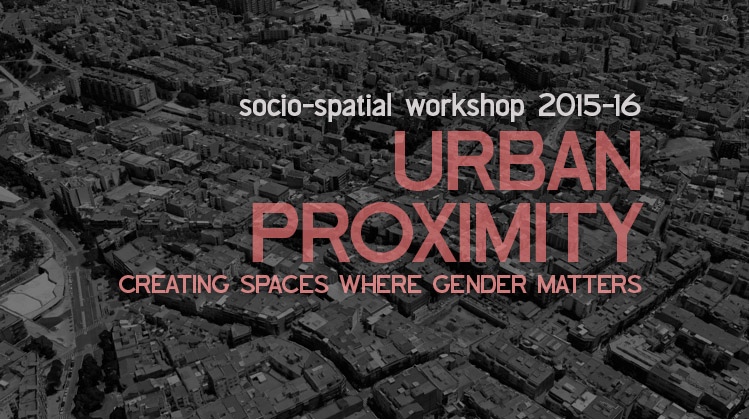
This week marks the beginning of our annual socio-spatial workshop in which our students undertake a hands-on, real-world project with a local neighborhood in Barcelona in assessing its social and spatial values with the aim of improving aspects such as connectivity, mobility and civic spaces. Led by our co-director Carmen Mendoza and other faculty members, the two-week workshop is a collaboration with the peripheral, multi-ethnic neighborhood of Fondo in Santa Coloma de Gramanet and the Municipality’s action plan (MAP) to analyze and provide proposals and policies on urban transformations that include mobility, accessibility, urban ecology, community ethics and maintenance.
Peripheral neighborhoods of contemporary European cities like Barcelona face a strong cultural and social mix due to high rates of immigration and growth during the current decade. This is the case of the neighborhood of Fondo, where diverse cultures co-exist and forge their day-to-day work and civic sphere, a complex reality that enhances the need to acknowledge and assess the intricate relationships between the diverse existing cultures and their use and perception of civic spaces.
Under the framework of the MAP, the workshop will focus on one of its topics, Urban Transformations, and specifically on the objective of promoting an urbanism of proximity, which intends to include the diverse stakeholders and a gender analysis to see “how far it can succeed in the deconstruction of the social roles of women and men in spatial terms.”
Working in groups, students will implement a socio-spatial analysis of:
- the transformation of the existing public spaces and voids of Fondo
- how to improvie connectivity between the neighborhood of Fondo and the surrounding neighborhoods
- how to improve the surroundings of the educational facilities in order to reinforce children’s autonomy
- current gender relations and their potential effects on proposals
Similarly to our Ciutat Meridiana workshop last year, students will analyze these aspects and delve into the strategic value of spatial and cultural resources in order to reinforce local identity and community engagement. In doing so, they will employ a methodological approach that understands place-making as part of a socio-spatial assemblage that can help identify and build spatial and social ties.
Course instructors:
Carmen Mendoza-Arroyo, Raquel Colacios, Marta Benages and Apen Ruiz
Collaborators:
Zaida Muixi – Head of Urbanism of Santa Coloma de Garment
Sara Ortiz – Colectivo Punt 6
Client:
Municipality of Santa Coloma de Gramanet, Fondo neighborhood

